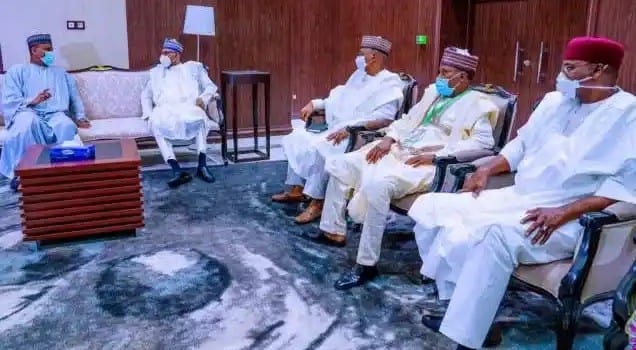Last updated on September 11th, 2021 at 02:37 pm
West African leaders ended a day-long summit in Mali on Thursday without a deal to soothe the country’s escalating political crisis.
Five of the region’s leaders met Mali President Ibrahim Boubacar Keita and leaders of a protest movement clamouring for his resignation, as a long-running jihadist insurgency threatens to throw the country into chaos.
But the intervention failed to seal a deal and Niger’s President Mahamadou Issoufou — at the talks along with the leaders of Senegal, Ivory Coast, Ghana, Nigeria — said Western African bloc ECOWAS would hold a summit on Monday.
“Nothing has moved for the movement,” said one of the protest leaders, imam Mahmoud Dicko, after holding talks with the presidents. Earlier as the foreign leaders arrived on Thursday morning, a small group of demonstrators gathered outside the airport.
“We’re here to demand IBK’s resignation and ensure our comrades who have been killed are not forgotten,” said Yaya Sylla, a young protester, using the acronym by which Mali’s leader is known.
The June 5 Movement, named after the date when the protests began, has tapped into deep anger over Keita’s perceived failure to tackle the dire economy, corruption and the eight-year jihadist revolt.
Malians are also incensed at the disputed outcome of long-delayed parliamentary elections in March and April that handed victory to Keita’s party.
The summit came on the heels of a five-day mediation mission from the 15-nation Economic Community of West African States (ECOWAS), which ended on Sunday without reconciling the two sides.
The West African leaders discussed proposed solutions that had been crafted in behind-the-scenes talks between the president and opposition this week.
The Institute for Security Studies think-tank warned on Thursday that there was an “unfavourable prejudice” towards the presidents, however, with some perceiving the leaders as protecting their own narrow interests.
“The search for solutions will have to take into account the need to improve the daily lives of Malians,” the think-tank said.
(AFP)

